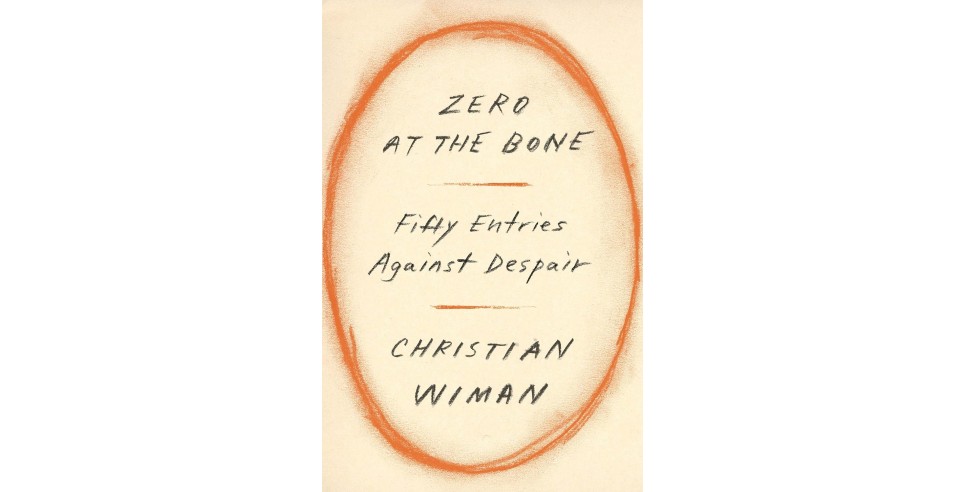
Zero At The Bone:
Fifty Entries Against Despair
by Christian Wiman
Farrar, Straus and Giroux
pp 306
Bear with me as I say something strange but powerful. I can think of few people who I would recommend this book to, and not because it is mediocre. Quite the contrary. “Zero At The Bone” is a painstaking but brilliant work of art. The words, images and metaphors are so powerful that I could only read a few pages at a time. The true sign of a good book is when the reader proclaims: “I didn’t want it to end.” My definition of a great book is when I say: “I need to keep it by my side in some small, inconspicuous place so I can secretly read it again.”
Christian Wiman has woven a tapestry, weaving between poetry and essays as if he is spiraling in and out of the intertwined planes of this material world and the spiritual realm. I took a journey, repeatedly bottoming out to nothingness and always circling back to a desire to breathe deeply while I am still here on this earth. I was vexed at times by Wiman’s propensity to take what is seemingly simple and deliberately making it difficult, ambiguous and obscure. I learned a new language, the language of both hope and despair. Salvific is a word that I had to look up in the dictionary. (There were many others.) So make no mistake, “Zero At The Bone” is my snob book for the year. Even Wiman’s young children radiating with light, sound mawkish, all grown up, dropping bon mots inspired by Nicomachean ethics.
There is no tenderness here, which opens space for what is raw and too painful to touch. No one writes more eloquently about genuine hope, as though hope cannot manifest itself until all possibility of hope has been reduced to pale ash. The truth does shine though, somewhere between ponderous passages describing the mysteries of life, and God, in ways only the author can fully appreciate or understand. Yet while I was reading “Zero At The Bone,” I woke in the middle of the night often dreaming of nothing, no despair, no anger, no depression, where all remedies in my life were exhausted except for my tenacious hold on the last shred of a frayed tapestry. I prayed in the end: Oh, Lord, let me live a while longer so I can fully explore and ultimately exhaust what it means to be a human, all of the trials, tribulations, the joy and the sorrow—that is salvific, my road to salvation.








